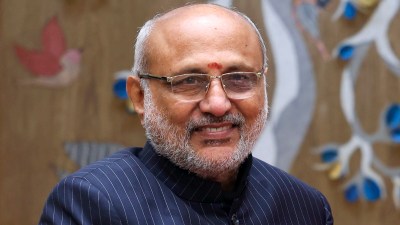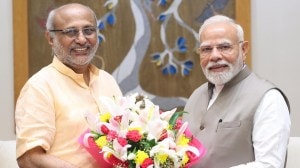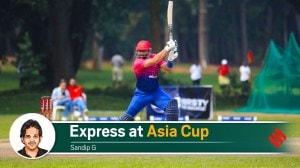Appoint a retired judge
I am against appointment of retired judges as heads of commissions and inquiry committees. They tend to prolong their term. They are in no h...

I am against appointment of retired judges as heads of commissions and inquiry committees. They tend to prolong their term. They are in no hurry to return to anything pressing. I know of only a couple of commissions chaired by retired judges finishing their work within the assigned period. No wonder that there is, as yet, no end in sight to the deliberations by the Liberhan Commission on the Babri Masjid demolition or the Nanavati Commission on the 1984 Sikh killings or the Venkataswami Commission on the Tehelka tapes. All the three commissions have been going on and on for months without any hesitation in asking for extensions, which the government has been giving readily, probably on political considerations.
It is possible the judges of all the three commissions did not know the enormity of work their examination would entail when they accepted the assignment. The government may have been unrealistic in assessing the period required for the submission of a report. Still both are getting a bad name, the commissions for not pronouncing their verdicts quickly and the government for not facing the fact of possible adverse findings. Whatever the truth, the public feels cheated. The parties defending themselves find the legal expenses too heavy and the nuisance of probing agencies too irritating. The tehelka.com owner has told me that it was no inquiry, it was “sheer unending harassment.” I think the commission should be obliged to issue a press note to explain the reasons for delay after every extension.
I recall when the commission on Tehelka was announced in Parliament the unanimous demand of members was for an early verdict. The government assured the two Houses that it would be so since the commission had been given only three months. Justice Venkataswami was, however, frank enough to say that he would try his best to meet the deadline provided he got a suitable accommodation for himself and premises for the office early enough. I suspect the government knew all along the inordinate delay in receiving a verdict on the Tehelka case but did not want to give the commission a long time in the face of frayed tempers at that time. This is more or less true of every commission. Quite a bit of its term is consumed by the mundane work of setting up the office itself. Then every bit of paper has to be xeroxed many times over because all the parties concerned have to get a copy each.
|
BJP leader Bangaru Laxman was rehabilitated by making him chairman of a parliamentary committee. If this is the government’s attitude, then why have a commission?
|
I am surprised over the extension given to the Nanavati commission. It did not have a difficult job to cope with. So many inquiry reports, official and non-official, are already there. Once when I appeared before it, I noticed the pace was leisurely. It didn’t bother to have my testimony authenticated. The copy it sent to me for correction has been lying with me for six weeks.
The Liberhan commission has been there for over two years. Justice Liberhan was understandably slow at one time because he expected to be promoted from the high court to the Supreme Court bench. But that too was long ago. His is a very important commission because Home Minister L.K. Advani, HRD Minister Murli Manohar Joshi and Sports Minister Uma Bharti were charged with complicity in the demolition of the Babri Masjid. They were acquitted by the high court but the appeal is pending before the apex court. Even when charge-sheeted, they continued to stay in office. The Liberhan commission should have acted quickly to end the anomalous situation. Justice M.C. Chagla took only a few months to decide what came to be known as the Mundra case in which the then Finance Minister T.T. Krishnamachari was in the dock.
Not long ago, I asked a question in the Rajya Sabha whether a person found prima facie guilty in an inquiry ordered by the government should be entitled to contest election. I specifically mentioned the name of Bakshi Ghulam Mohammad who I thought was debarred from election. The government said my information was incorrect and that there was no such law in Jammu and Kashmir. However, the reply by the chief electoral officer of the state was interesting. It reads: “The details regarding the particulars of period when Bakshi Ghulam Mohd was once reportedly stopped to contest election are not forthcoming in this office. However, this office approached state archives department in this behalf and who have provided summary portion of the NR Ayyengar Commission’s report on the misuse of official position by Bakshi Ghulam Mohammad.”
If a minister with a prima facie case does not feel obliged to quit, at least those against whom the commission is set up should not rejoin the office till the inquiry is complete. Take the example of Defence Minister George Fernandes. He was implicated in the Tehelka tapes because the Samata Party president, Jaya Jaitly, was caught in the gross impropriety of receiving supposed arms dealers and middlemen at the defence minister’s residence. He resigned from the ministry, announcing he would not return until exonerated. But he has become the defence minister before the Venkataswami commission has given its verdict.
Similarly, Bangaru Laxman, the then BJP president, had to step down when he was caught on the Tehelka tapes stuffing currency notes of Rs 1 lakh into a drawer and asking for the rest in dollars. The party rehabilitated him by making him the chairman of a housing committee of Parliament. If this is the government attitude, then why have a commission, in the first instance? It is obvious the government appoints a commission under pressure, not to reach the truth. Once the pressure is over, it restores the status quo ante knowing well that the essential part of a charge is still intact. It is sad such a precedent has been set by the Vajpayee government, which said at the beginning of its rule that it would be guided by certain values.
And the saddest part of all commissions is the role of officials who tamper with official records and who file affidavits which are palpably wrong. This is what the Shah Commission on the Emergency and the Ayyengar Commission on Bakshi Ghulam Mohammad said. The two commissions pointed out that officers were coerced to make false statements out of fear of losing their jobs. That the government feels happy over the cooperation of the official machinery is well known. What it does not realise is that it is delivering blow after blow to a democratic polity which is based on confidence and trust. Without the awareness of what is right and a desire to act according to what is right, there will be no realisation of what is wrong.
And what about the one-man commission to look into the Gujarat riots? The judge is one of the ‘transferred’ judges. Despite several demands to expand the commission to include two more judges, the government has not acted — as if the one-judge commission is as sacrosanct as Chief Minister Narendra Modi is. This may result in people viewing its verdict with suspicion.
Photos



- 01
- 02
- 03
- 04
- 05



























